Foreigners who helped China fight against aggression
Updated: 2015-09-03 08:05
By Wang Qingyun(China Daily USA)
|
||||||||
Allen Larsen

Born in October 1924, Allen Larsen is a veteran of the Flying Tigers and arrived in China 71 years ago.
He and William Dibble, a deceased member of the Flying Tigers, compiled an album titled China in the Eyes of Flying Tigers 1944-1945, which comprises photos he and Dibble took in Chinese cities including Kunming and Hangzhou.
"I hope that our introductions will inform you of the widespread interest and faith that we had in the alliance with China in WWII. This is a very important part of my life and I shall never, never forget," he said in his opening remarks in the news conference in Beijing on Wednesday.
He also recalled that while in China, he asked his mother to send him a doll, which he later sent to a local 4-year-old girl in. About a year ago, the young girl who received the doll went to visit him in the United States.
They had a reunion on his 90th birthday. "So there were many people there who got to know the story of how the Americans and the Chinese interacted during the close of WWII," he said.
"I think that a military parade at the end of a war, such as World War II, is important for the recognition of those who participated in that conflict, who left their families, and some who never came back," he said.
Shigeo Tsutsui

Shigeo Tsutsui (1920-2014), was sent to China in 1940 as a pilot of the Japanese army. He was captured by villagers and sent to the Eighth Route Army in 1945 after landing in Shandong due to a mechanical error of the plane. According to Kenji Tsutsui, his son, he attempted suicide but was stopped by the Eighth Route Army, and he later changed his view of the world and joined the Eighth Route Army.
Tsutsui took part in training Chinese pilots and coached some of the pilots who flew in the parade at the founding ceremony of the People's Republic of China on Oct 1, 1949.
His son said at the news conference on Wednesday: "Now my father has passed away. I believe that I will continue to carry with me my father's memory and dedicate myself to friendship between the two countries and peace in the world."
Ted Stevens

In 1980, he and his wife, Catherine Ann Stevens, visited China and met Deng Xiaoping.
He was also the creator of the United States-China Inter-Parliamentary Group.
Catherine Ann Stevens said at a news conference in Beijing on Wednesday: "One of the reasons that he did so much with China in his years in the Senate was that he did not want Americans to forget what happened in connection with China, and part of that is happening in our memorials such as the World War II museum in New Orleans, which is just opening a China-Burma-India exhibition."
"They are passing the torch to future generations and hope they can learn more about the terrible war that happened here in China," she said.
Jean Augustin Bussiere

Jean Augustin Bussiere was a French military doctor who arrived in China in 1913 and stayed until 1954. In China, he first served as a doctor for the French mission, and went on to consult some Chinese politicians including Yuan Shikai.
He took part in establishing Shuguang Hospital in Shanghai. He was among the first foreigners to have witnessed the Japanese invasion of China in 1937, and secretly transported medicines to the Eighth Route Army during the war.
"I'm very proud of the humanitarian spirit of my father and I also believe that this can be a great example for the young people and doctors these days," said Jean-Louis Bussiere, his son, on Wednesday in Beijing.
"I believe it (the victory parade) is an occasion to help us remember the past suffering, but also a chance for the next generation to know by this example that you should not only resist aggression when it takes place, but in times of peace, you should also know how to keep peace and deliver it to the future generations," he added.
Vasily Ivanovich Chuikov

Vasily Ivanovich Chuikov (1900-82), was a general in the former Soviet Union and was a military adviser to Chiang Kai-shek. The army he commanded held on to Stalingrad in 1942.
Chuikov went to China for the first time when he was 26, and as a military leader he assisted the Chinese people in fighting WWII, his grandson Nikolai Chuikov said on Wednesday.
"I want to thank the Chinese people, not only because some Chinese soldiers took part in the Great Patriotic War, but at the same time on the Chinese battlefield, the Chinese troops effectively tied up the Japanese troops and allowed the Soviet troops to focus on the battlefield in Moscow," said Nikolai Chuikov.
wangqingyun@chinadaily.com.cn
(China Daily USA 09/03/2015 page3)

 Military helicopters write number 70 high in the sky
Military helicopters write number 70 high in the sky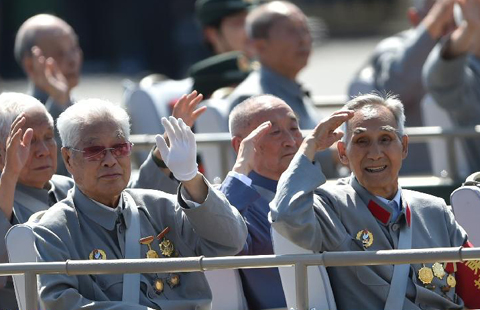
 Salute to veterans
Salute to veterans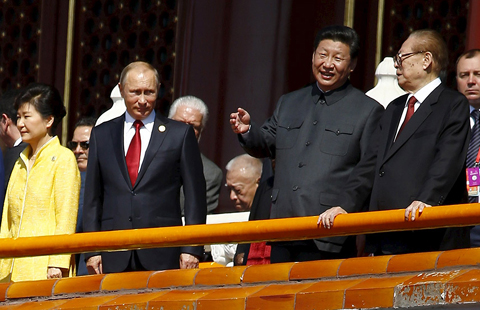
 Xi attends the ceremony with other leaders
Xi attends the ceremony with other leaders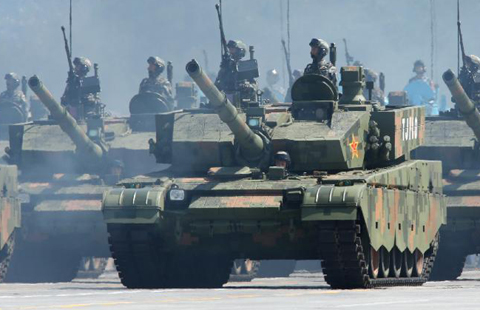
 Armored vehicles roll down the parade in huge roar
Armored vehicles roll down the parade in huge roar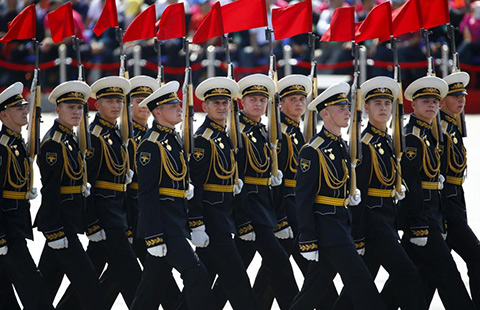
 Foreign troops celebrate with Chinese comrades
Foreign troops celebrate with Chinese comrades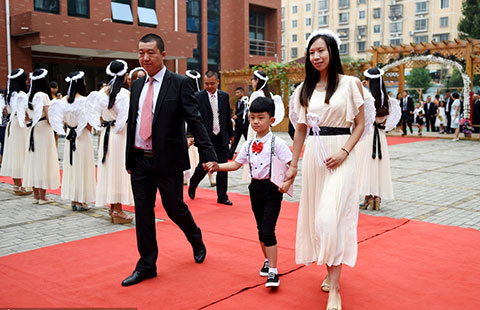
 Red carpet ceremony for first grade kids
Red carpet ceremony for first grade kids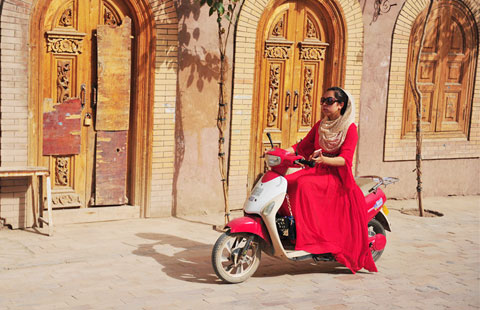
 Kashgar old city in Xinjiang is well preserved
Kashgar old city in Xinjiang is well preserved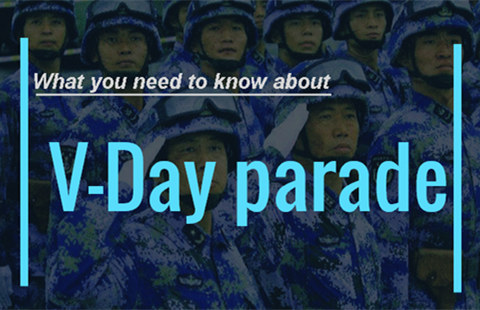
 Infographic: Symbols behind numbers
Infographic: Symbols behind numbers
Most Viewed
Editor's Picks

|

|

|

|

|

|
Today's Top News
China to cut troops by 300,000: President Xi
China holds parade, vows peace on war anniversary
Peking Opera: Star power
IMF: China can transition
Xi urges cross-Straits honoring of history
Xi awards medals to veterans
Stocks sell off on growth fears
China and US working closely on every major issue: Envoy
US Weekly

|

|







